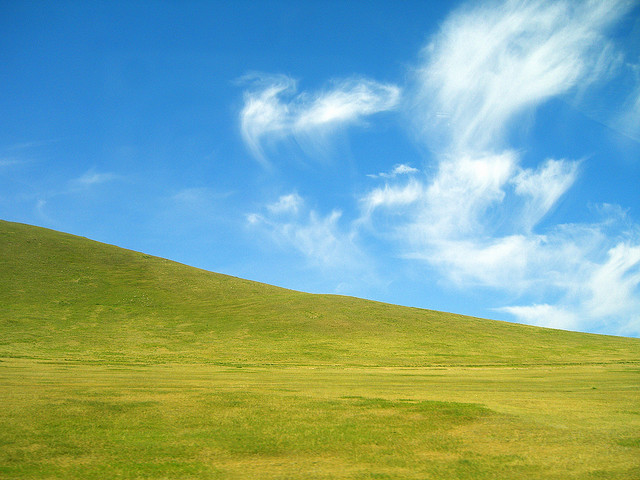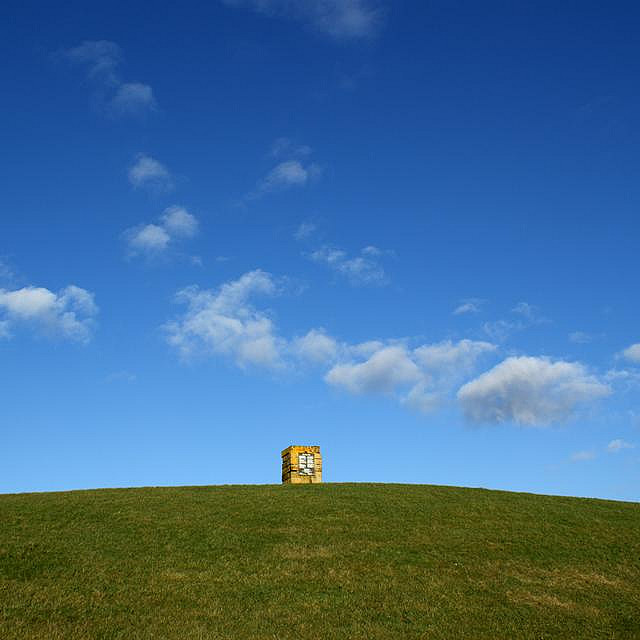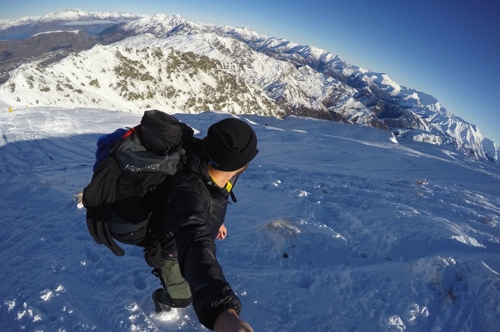This is a post by contributing author Lauren Fritsky of TheLifeThatBroke.com (@LaurenFritsky).
Using eco-friendly products, recycling and eating locally-grown food can be easy — at home. Yet if you’re on a RTW trip backpacking in Thailand, Sydney or Vancouver, you might find it difficult to keep up with your environmentally-conscious lifestyle. To help you stay green while backpacking around the world, we asked some globetrotters for their tips on staying green on the road.
Check out these green travel tips from some travelers in the know…

Christine Amorose of C’est Christine
“I try to minimize my carbon footprint by limiting my use of plastic whenever I can. Instead of using plastic shopping bags at markets or shops, I use my Chico Bag. It’s lightweight and small enough to fit in my purse every day — and doubles as a beach bag or picnic basket when necessary. Instead of constantly purchasing plastic bottled water, I just fill up my stainless steel Klean Kanteen with cold tap water.”
Lara Dunston of Gran Tourismo
“When my husband and I travel, we will always choose a holiday rental over a hotel if we can — and primarily for ‘green’ reasons. By staying in an everyday house/apartment, we’re using an existing resource and one that uses a lot less energy than a hotel, so we’re leaving a smaller environmental footprint. We will recycle if we can, re-use our towels, and not waste food — all things that hotels make difficult to do!
We’re also contributing to a local community, shopping at local markets and using local businesses, and we’ll always buy local, seasonal produce rather than imported products, so all in all it’s a much more sustainable and responsible way to travel.”

Caroline Eubanks of Caroline in the City
“I’ve been using the same knockoff Nalgene water bottle for the last probably five years. It’s good to refill before a flight instead of spending $5 on one you will throw away. I’ve also stored my toothbrush inside so it doesn’t get dirty, as well as filling it with boiling water to keep my bed warm. Multi-purpose!”
Lindsay Maxwell of Where You Make It.
“Hooking up to full power at campsites can get expensive, so the biggest thing I’ve done to stay eco-friendly and self-sufficient is install solar panels on the roof of my converted sprinter van. It’s a great way to create your own energy and travel wherever you want, not having to worry about staying in campsites with full electrical setups.”
Ben Lancaster of Amateurs in Africa
“Pay a little more. It’s not much difference in price, but using accredited local tour guides makes a huge difference to the sustainability of the local tourism industry and the local communities you’re visiting. The guides are also way better and funnier. Fact.
Unfortunately with limited infrastructure for processing waste, packaging from Western manufactured products is an issue [in Africa]. As such, you’ll often see rubbish being thrown into the streets due to a lack of knowledge and understanding — lead by example and hold on to your waste until you find a bin. Also, ask companies what they are doing to help combat the issue in communities from which they are profiting.”

Lindsey Tramuta from Lost in Cheeseland
“I think one of the best ways to maintain a green lifestyle during travel, aside from choosing means of transportation that will keep your carbon footprint to a minimum (trains, public buses, hybrid vehicles, etc.), is to immediately seek out local recycling centers upon arrival at your destination. If necessary, ask locals where you can recycle plastics, glass, paper and other products to not only maintain the eco-habits you practice at home but to respect the environment you are visiting.”
Nicole Schwab of Chasingwonderlust
“When I travel, I would say that the most ‘green’ thing I usually do is take public transportation and/or walk most places I go. I usually try to see most places on foot for a number of reasons. First of all, I think that’s the best way to get to know a place & discover things you might otherwise miss. Also, it gives me a bit of exercise to work off all the calories I typically eat when I’m on holiday!”
What are your green travel tips? Leave them in the comments section below.


 Backpacking Matt
Backpacking Matt 




If you are backpacking/camping over night on the road make sure when washing yourself or dishes, the water you are rinsing away is not harmful. Use biodegradable soaps so that they are less likely to contaminate streams or harm animals that drink from these waters. When possible, use soaps at least 100 feet away from streams, rivers and lakes.
Have fun too
Your contrbutors list some very important eco-behaviours we can all adopt while travelling on our holidays
I would add that the behaviour of travelling around the world for our ‘playtime’ produces a very large carbon footprint, way beyond recycling plastics and purchasing local produce
I run a not-for-profit charity http://www.treesfortravellers.co.nz, which has a travellers carbon calculator which provides the means to offset a carbon footprint through planting native trees in Kaikoura, New Zealand, one of the most beautiful, but also one of the most trashed countries in the world, ie: originally about 95% tree coverage, currently at about 15%
I walk everywhere and take public transit, too. I’m also vegan, which lowers the footprint of my foot considerably. I also recycle where possible, and rent apartment instead of hotels about 80% of the time, and make sure to support local businesses.
Really great tips! And the best part is, most of these are incredibly easy and don’t require much effort or sacrifice.
Those are all good tips…and most wouldn’t even be too hard to put into practice!
Nice tips and its great to hear what others are doing to help. I have a bag that I use when I go shopping so I never have to use and paper or plastic ones. I am all for walking and didn’t really realize how much it helps.
Nice tips. They seem easy to do. I’ll need to use them on my next trip next year.
Also carry a solar backpack if possible — they exist! You don’t need outlets or plugs for your devices..just plug and recharge.
The biggest impact is likely to be transport, followed accommodation and then the food you eat. Of course not using plastic bags helps but their impact is almost unseen when compared to these three items. Of course plastic bags hang around for thousands of years and kill lots of wildlife so I am not suggesting you don’t cut down on their use. What I am suggesting is to tackle the biggest impacts first.
Do you really need to fly to a long haul destination? The world is a big place. Are there alternatives closer to home that you can get to by bus, rail or ship? If not fly economy as First Class has over twice the carbon footprint. Then try to make a long stay and take in a lot so that you will not need to fly there again.
Offsetting is of limited use, the answer is to cut down on high carbon travel and not hope someone else will live a low carbon lifestyle to compensate for our profligacy.
Staying in budget accommodation such as small B&B’s / hotels without lots of lights, huge TV’s and especially air conditioning will save. Food has already been covered, but note that any savings made by walking everywhere will be lost if your diet that provides the energy for you is from air freighted asparagus or similar.
All good ideas. Even though we travel by RV a good bit (obviously not the greenest) we always use our bikes to do our sight seeing and shopping trips. Hopefully that makes up for some of our footprint.
These are some awesome recommendations!! Me and my husband prefer a floating hotel or a rental hotel to stay during our vacations primarily for ‘green’ reasons. Florida Keys is one such place to be, as it facilitates you with immensely beautiful place to stay and many naturally scenic destinations around which automatically helps people follow the ‘going green’ reasons. Nice share..!!
improve website design…http://www.jogosdoxmen.com
I think that for perpetual travellers the mean of transportation is the biggest choice. Travelling by land is the best way: cycling, walking, hitchhiking would be the best for the environment!